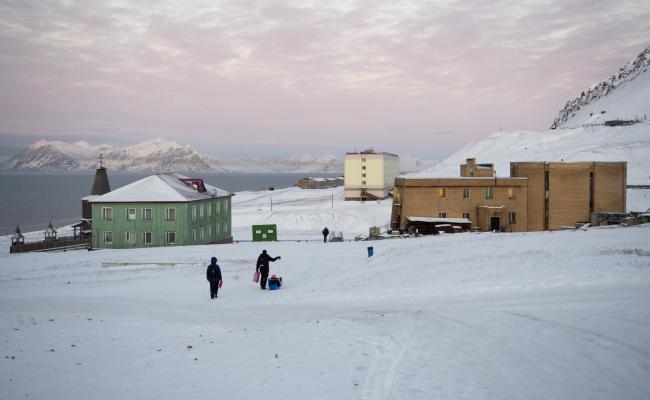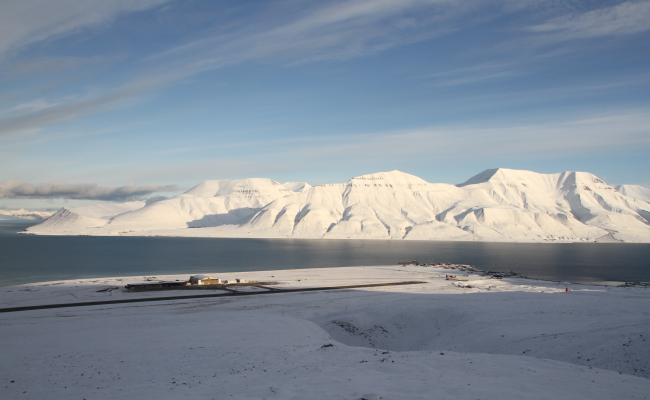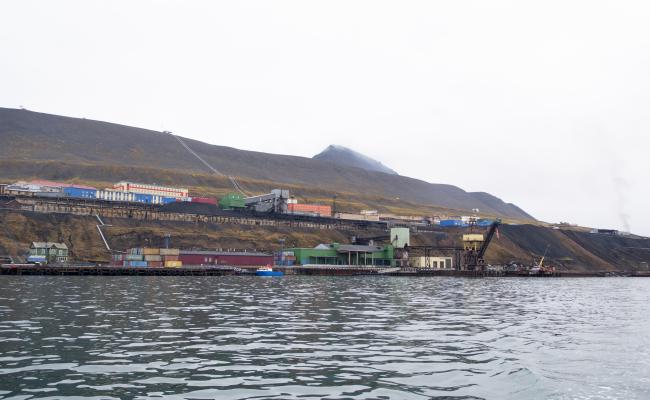Russian Future Analysis for Svalbard: Envisions Cooperation Over Military Escalation
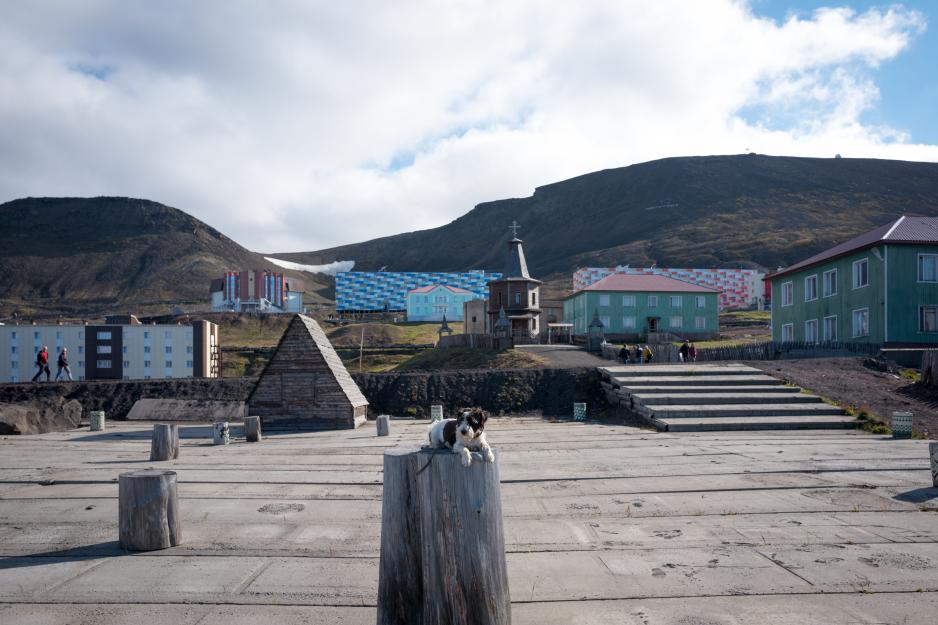
The Russian mining company Trust Arktikugol and its tourism subsidiary, Grumant, manage the Russian settlements of Barentsburg and Pyramiden on Svalbard. Pictured is Barentsburg – which holds a coal power plant, kindergarten, school, hospital, research center, hotel, culture and sports center, as well as a Russian consulate. (Photo: Frode Bjorshol)
An analysis of future prospects of the Russian presence on Svalbard, shared by the Russian state-owned company on the archipelago, highlights the potential for cooperation rather than conflict. It also recommends Russian efforts toward green development and reputation-building.
"Spitsbergen is a strategically important area for Russia in the Arctic. What should be the strategy for Russian presence on the archipelago?"
That writes the Russian state-owned company on Svalbard, Trust Arktikugol, on its website, and points to the analytical report "Spitsbergen 2033: Prospects for the Russian presence".
The analysis from December 2022 is published in Russian by the MGIMO Scandinavian Club at Moscow State University. It has been produced by students and an analyst at said university, which educates the future diplomats for Russia's Ministry of Foreign Affairs.
"What scenario awaits Spitsbergen – radical militarization or passive confrontation between Norway and Russia? Are there still possibilities for Russian-Norwegian cooperation? Which measures could Russia implement in order to strengthen its presence on the archipelago? You will find answers in this report," writes Trust Arktikugol and links to the report.
Backdrop
Central to the analysis is the outline of two scenarios for further Russian presence in Svalbard – called Spitsbergen from the Russian side. This was the name of the entire archipelago until 1925 when the Svalbard Treaty entered into force and Norway changed the name.
But before the scenarios are presented, the authors point to two matters in particular.
Firstly, they note that the treaty provides Norway with legal tools to limit Russian economic activity on Svalbard.
"Norway has created administrative and legal barriers which constitute a serious obstacle for Russia in the development of infrastructure and tourism on the archipelago," writes the authors.
Secondly, they point out that the confrontation between Russia and the West also affects the Arctic – and that this strengthens "military political issues" on Svalbard.
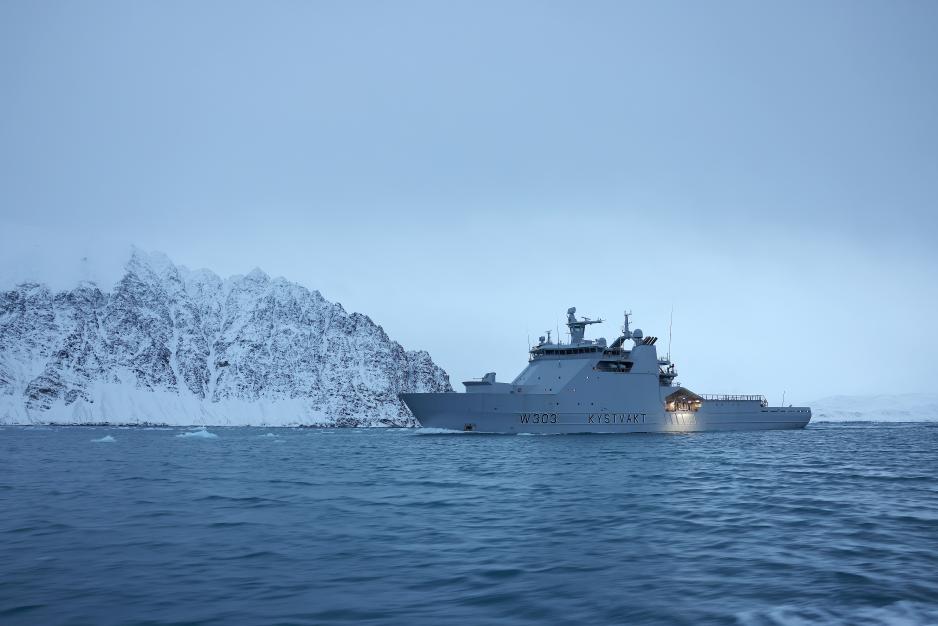
The Coast Guard vessel KV Svalbard on a voyage in February by the west coast of Spitsbergen, which denotes Svalbard's largest island from the Norwegian side. On the voyage, a fishery inspection of a Russian fishing vessel was carried out. (Photo: Torbjørn Kjosvold/the Norwegian Armed Force)
Militarization scenario
"Norway is militarizing the archipelago and thereby expelling Russia." This is how the first possible future scenario is described by the authors.
"One should not completely rule out potential attempts by Norway to expel Russia from the archipelago or to reduce the economic activity to a minimum," they write.
Furthermore, reference is made to "hard official rhetoric from Oslo on the special military operation," i.e. Russia's warfare in Ukraine, as well as to "ongoing provocations with the coast guard's vessels sailing in Spitsbergen's territorial waters".
"There is a possibility of Norway continuing the militarization of the archipelago in the wake of the deeper confrontation between Russia and the West," they maintain and refer to plans of regular training flights to Svalbard with the Armed Forces' transport aircraft Hercules.
The risk of military escalation in the region is low.
Made unlikely
On the other side, the authors note that Norway has instruments in its environmental regulations that can be used to restrict Trust Arktikugol's operations strongly, but that the country has not yet utilized – or seems to want to utilize.
They also point to conditions that speak against Norwegian militarization:
"In the Norwegian's understanding, the risk of escalating tension and increased possibility of a clash with Russia has not outweighed the dubious benefits of including the archipelago in the defense structure in Norway and the alliance as a whole. Furthermore, the country does not officially consider the archipelago as a place for a potential military confrontation with Russia. In addition, there is no proof of such a scenario in NATO's doctrinal documents."
"The probability of extensive restrictions on Russian activities in Spitsbergen and the risk of military escalation in the region is low," they summarize.
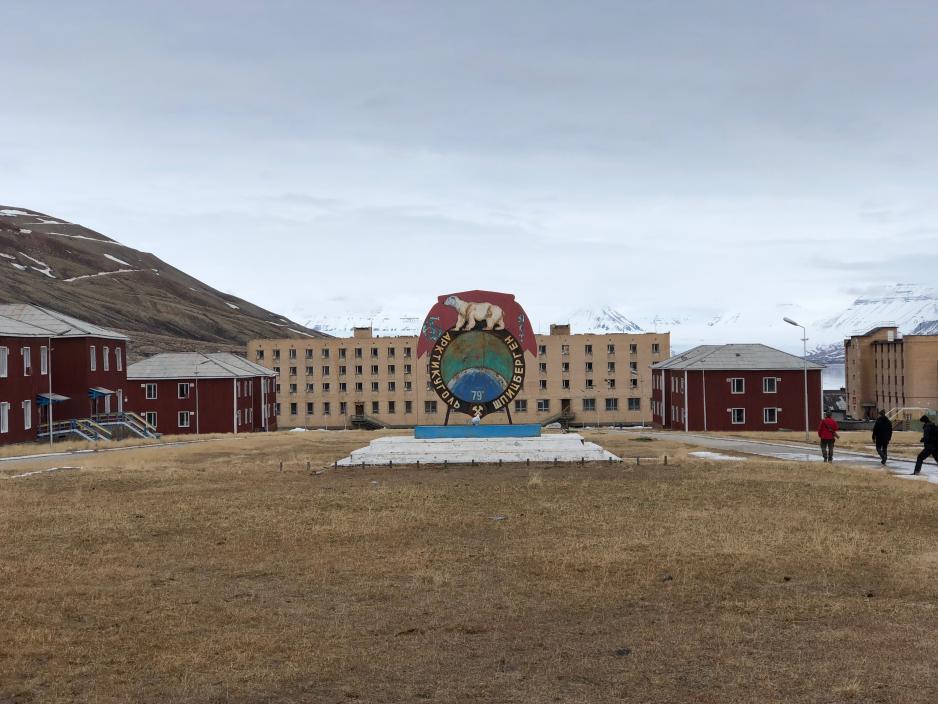
The Russian settlements Barentsburg and Pyramiden (pictured) had a total of 391 inhabitants per the first half of 2022, according to Statistics Norway. The statistics for the period from 2010 show a peak in 2019 of 537 people and the lowest point in 2011 of 370 persons. (Photo: Alina Bykova)
Coexistence scenario
Furthermore, the authors present another scenario they believe to be more realistic: "Norway will continue to create obstacles, but will not turn to radical measures."
They believe it probable that Oslo, during Russia's "special military operation", will do nothing "beyond provocations and attempts to limit Moscow in exercising their rights on Spitsbergen."
"In light of a clear understanding that a conflict between the two countries is unacceptable, as well as the general non-aggressive position of local authorities towards Russia, there is a basis for cooperation. This may, with a certain reduction in international tension, become stronger in the future. In that regard, Russia is facing the task of developing a strategy to promote its presence on the archipelago," the authors point out.
"The current reality of international relations and Russia's commitment to the words and spirit of the Paris Treaty [Svalbard Treaty, ed. note] dictates that soft power should be the main instrument in Russia's Spitsbergen policy."
This conclusion forms the springboard for their recommended strategy up to 2023.
Soft power should be the main instrument in Russia's Spitsbergen policy.
Proposed strategy with green features
"The overarching lines of Russian policy on Spitsbergen should be to make Arktikugols operation more environmentally friendly; develop their own news agenda; cooperate with Norwegian search and rescue services; and develop connection on areas such as tourism, science, and culture," states the authors.
For a greener development of Trust Arktikugol, they suggest investments in work to reduce emissions from the coal power plant in Barentsburg or shifting to alternative sources of energy such as biofuel.
"Such measures could open up cooperation with the Norwegians in the scientific field. Such measures could also make it possible for Russia to improve its reputation and deprive the Norwegians of reasons to limit Arktikugol's operations in regard to environmental violations," they recognize.
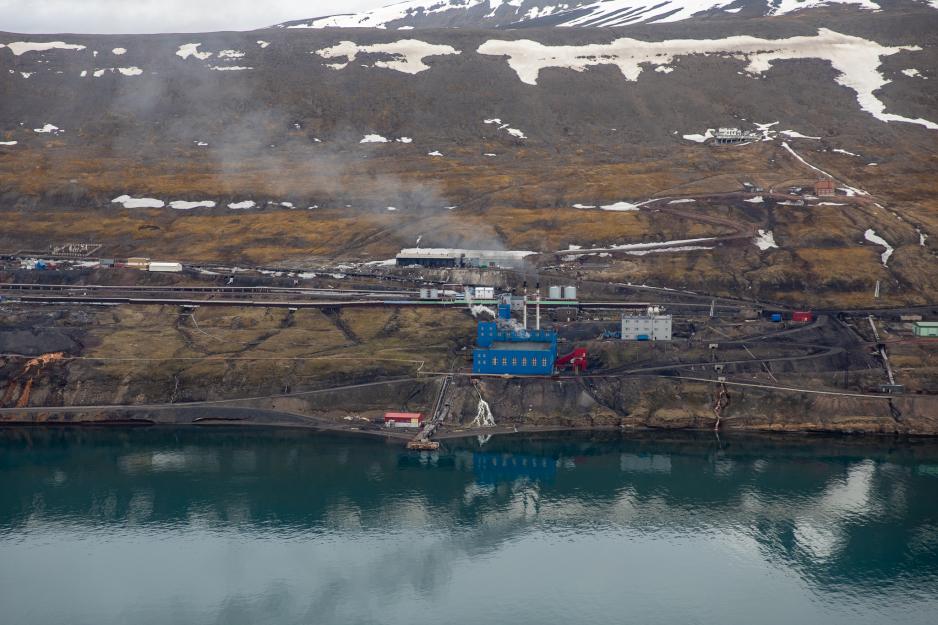
Trust Arktikugol should receive increased funds in order to cut emissions at the coal power plant in Barentsburg, the future analysis suggests. (Photo: Snorre Tønset/KLD)
News agenda
In regard to the development of a Russian news agenda, the authors point to how the archipelago's Norwegian newspaper, Svalbardposten, "forms a negative image of Russia in the perception of the Spitsbergen population."
At the same time, they see possibilities for Russian inhabitants to write op-eds for the newspaper with the help of translators from the Russian Consulate General or Trust Arktikugol.
"Such a measure will form an alternative news agenda on the archipelago and remove the "enemy label" on Moscow. In addition, there is a need to develop our own Russian media: both printed and electronic publications in English in order to reach as wide an audience as possible. This can, from our perspective, be done by the Consulate General and Trust Arktikugol. In the future, electronic publications will make it possible to spread the alternative agenda, not only to Spitsbergen but also to the Norwegian mainland."
Possible areas of cooperation
In the long term, the authors envisage that the development of a more favorable reputation and lower tension vis-à-vis the West can create fertile ground for more fully-fledged cooperation initiatives vis-à-vis Norway.
"One of the areas for such cooperation could be joint efforts to strengthen the safety of the population on Spitsbergen. Due to harsh climatic conditions, there is a need for a search and rescue base, which could become a joint Russian-Norwegian project."
The authors also find "important opportunities for the development of international relations that are less influenced by the political situation" within tourism, science and culture.
"However, it should be taken into account that such a development of cooperation in the region is only possible after the active phase of the conflict in Ukraine and requires long-term work to form a positive image of Russia in the international arena," they note.
The authors also believe that the possibilities for cooperation are conditioned by the absence of obstacles to the development of infrastructure. In addition, they maintain that multilateral cooperation with the involvement of a third country in certain projects should not be ruled out.
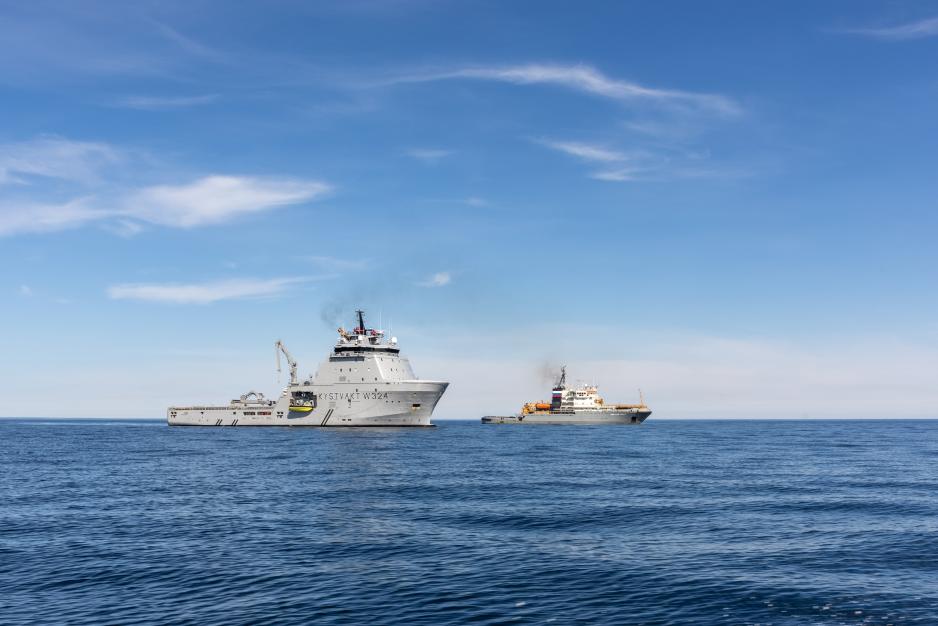
Norway and Russia have over a number of years trained together on search and rescue in the Barents Sea. Last year, Barents Rescue was canceled due to the Ukraine War, but the countries' operative cooperation in the area remains. In the long term, the establishment of a new search and rescue base on Svalbard may be a new joint project, suggests the authors of the analysis. Pictured are a Norwegian Coast Guard vessel and a Russian tugboat during Barents Rescue 2021. (Photo: Onar Digernes Aase/the Norwegian Armed Forces)
Military policy issues
Back to perceived heightened "military policy issues" on Svalbard in light of strong tension between Russia and the West:
The authors write that these issues are rooted in Russia's and Norway's different interpretations of the Svalbard Treaty's Article 9. According to that, the establishment of naval bases or fortifications is not allowed on the archipelago, and the area must also never be used for war purposes. They describe the difference in interpretation as follows:
"Any activity that does not directly fall under these criteria is allowed from a Norwegian point of view. Russia, however, has a broader perspective on the article, and argues that the archipelago should be a completely demilitarized zone."
Furthermore, they point to how Russia has problematized the possibility that the radar station and the launch base on Svalbard can not only be used for research but also for military purposes. The coast guard's presence is also criticized with reference to the fact that it is part of Norway's navy and that "some vessels have armaments similar to those of frigates."
Also read
This article was originally published in Norwegian and has been translated by Birgitte Annie Molid Martinussen.


